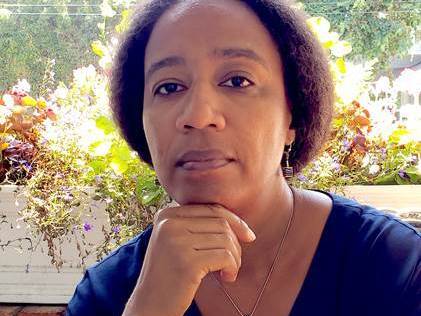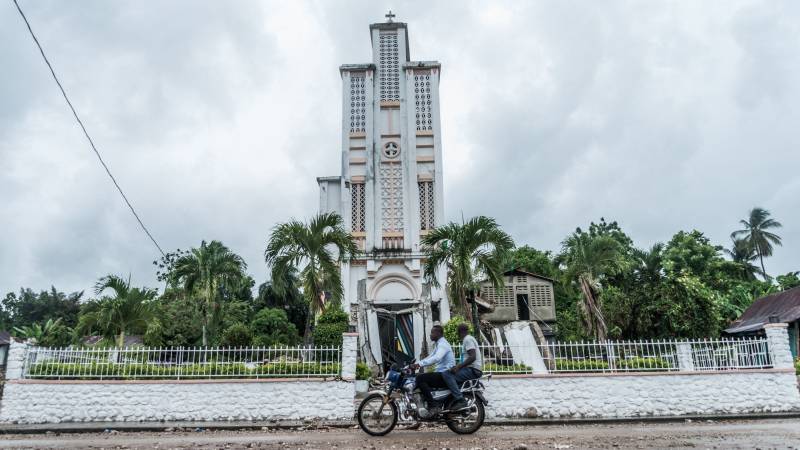Just over a week after the earthquake that rocked southern Haiti, killing over 2,000 people, tumbling buildings, fissuring roads, it’s difficult for me, as a native of Port-au-Prince, to piece together my thoughts on what has happened.

So much of me remains, or has come with me, from that mountainous landscape: the red of flamboyant trees; the yells of market women; the cry of a neighbor’s rooster; my grandmother’s cooking. When I was born, most of my family lived in Port-au-Prince. Returns were frequent, to the point that I did not realize for years that I lived outside Haiti. It was only when summer returns ended and family began to visit us, that I realized that we had left. Still, in my mind, Haiti was home; everywhere else was temporary.
So soon after the current catastrophes, I’m surprised to hear my American acquaintances referencing the 8/14 earthquake—and the hurricane that struck a few days later—as something banal, as if to say that, this being Haiti, we can expect little more than catastrophe and chaos. Such pronouncements are couched in an “othering” of Haitians. There is also an unspoken assumption that Haitian immigrants like myself seek to assimilate, start over, forget everything and everyone left behind. But most immigrants are here because others were there. Still, even as we continue in an elsewhere in which “home” must be forged, some part of us remains in our places of origin.
Gunboat diplomacy brutalizes a newborn nation

August 14 is also the anniversary of the gathering of Bois Caïman when, in 1791, enslaved Africans gathered in a vodou ceremony to set in motion the liberation of Saint-Domingue, making it the first Black nation in the hemisphere and the second American Republic (second to the US) by 1804. In an important historical analysis of Haiti’s marginalization in the Western Hemisphere, Silencing the Past, Haitian anthropologist, Michel Rolph-Trouillot wrote about how the success of the Haitian Revolution has been denied because of a belief that enslaved people could not imagine freedom, nor free themselves.
Yet, its success can be measured by the visceral global response, including France’s imposition of a sizable indemnity to “allow” the new nation access to global trade, estimated in today’s currency to amount to $21 billion. This, and only this, is the cause of Haiti’s precipitous economic decline. Gunboat diplomacy then ensured that the fledging nation could not advance its sovereignty. Consequently, the number of Haitian immigrants and refugees to the U.S. rose dramatically in the late 20th century, only to be rebuffed, sometimes violently—as Edwidge Danticat has documented in the memoir of her uncle’s death at the hands of immigration services, Brother, I’m Dying. When journalists refer to Haiti as the poorest country in the Western Hemisphere I don’t cringe, as others do, because I know this history.


9(MDAxOTAwOTE4MDEyMTkxMDAzNjczZDljZA004))

